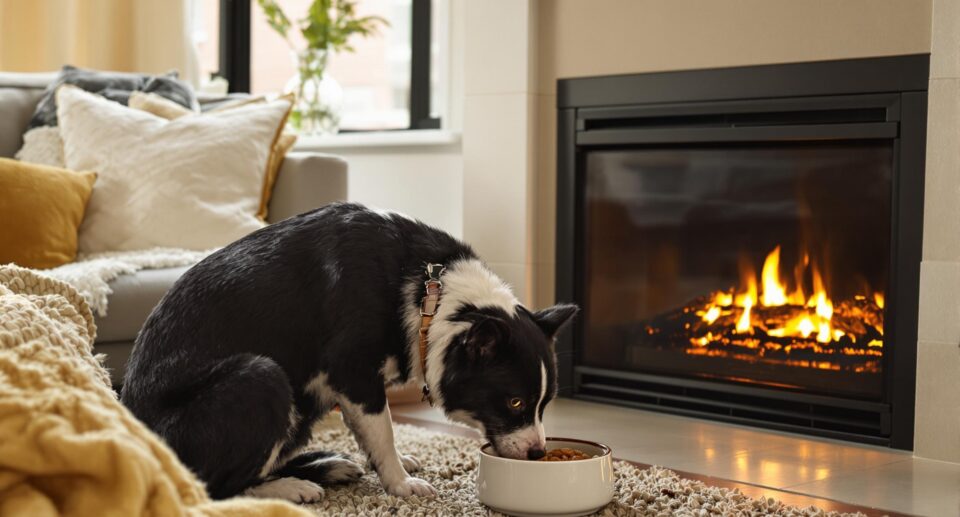Winter Feeding and Health Tips for Dogs

Many dog owners make the mistake of overfeeding their dogs during the winter. Unless your dog lives outdoors or spends a lot of time outdoors during the winter, he or she often needs no additional calories during the winter chill. When Jack Frost comes knockin’ this year, there are some easy ways to determine how much you should be feeding your dog.
Provide the Right Amount of Calories
If your dog does spend a lot of time outdoors, as a working animal, extra calories will be required because it takes more energy in the winter to keep the body temperature regulated.
The amount of extra calories required will vary between 10% and 90% more than normal. Use the following factors to determine how many additional calories you should be feeding your active dog:
- Size
- The amount of hair and subcutaneous fat
- Age
- Health status
- The actual outdoor temperature, the length of time outdoors and the kind of protection from the elements that your dog has
Dogs that spend most of their time indoors during the winter are often less active and therefore require fewer calories to avoid gaining weight. Make sure you avoid plumping up your dog with extra calories. Instead of adding a layer of fat to keep your dog warm during the winter season, choose a cozy blanket for the dog bed or a well-fitting coat and booties if your dog is headed outside!
Soothe sore, cracked paws
Many other seasonal conditions could arise that may require special dietary needs. During winter months, sore cracked paws may be the result of contact with sand and salt commonly used on icy sidewalks and roads. These irritants can cause problems for your dog’s exposed padding. Because of the possible underlying medical causes, any dog with sore, cracked paws should have a full medical evaluation by a veterinarian so that proper diagnosis and treatment can be implemented.
There are many dogs with sore, cracked paws who may respond to dietary and/or nutritional therapies. If you want to consider an natural commercial diet, try Halo. Should feeding a raw meat diet not be possible, supplementation with Omega 3 fatty acids such as Be Well, as well as Nordic Naturals Omega-3 Pet is very helpful when used long-term. Topical application of vitamin E gel, or aloe vera gel a few times daily also can help soothe irritated paws and promote healing.
Give your dog enough water
Another frequently overlooked winter need is adequate hydration. Dogs can dehydrate just as quickly in the winter as the summer. Check your dog’s outdoor water bowl often and break ice that may form on top. Although many dogs eat snow, it is not an adequate substitute for fresh water. In fact, eating snow can be dangerous…especially if vehicles are nearby because they pose a possible antifreeze threat. Antifreeze is extremely toxic and just a small amount can be fatal for dogs. Keep your dog out of the garage and off the driveway where antifreeze or other harmful chemicals may be accidentally ingested.
If you have questions about what your dog needs during the winter, ask your veterinarian for advice.





